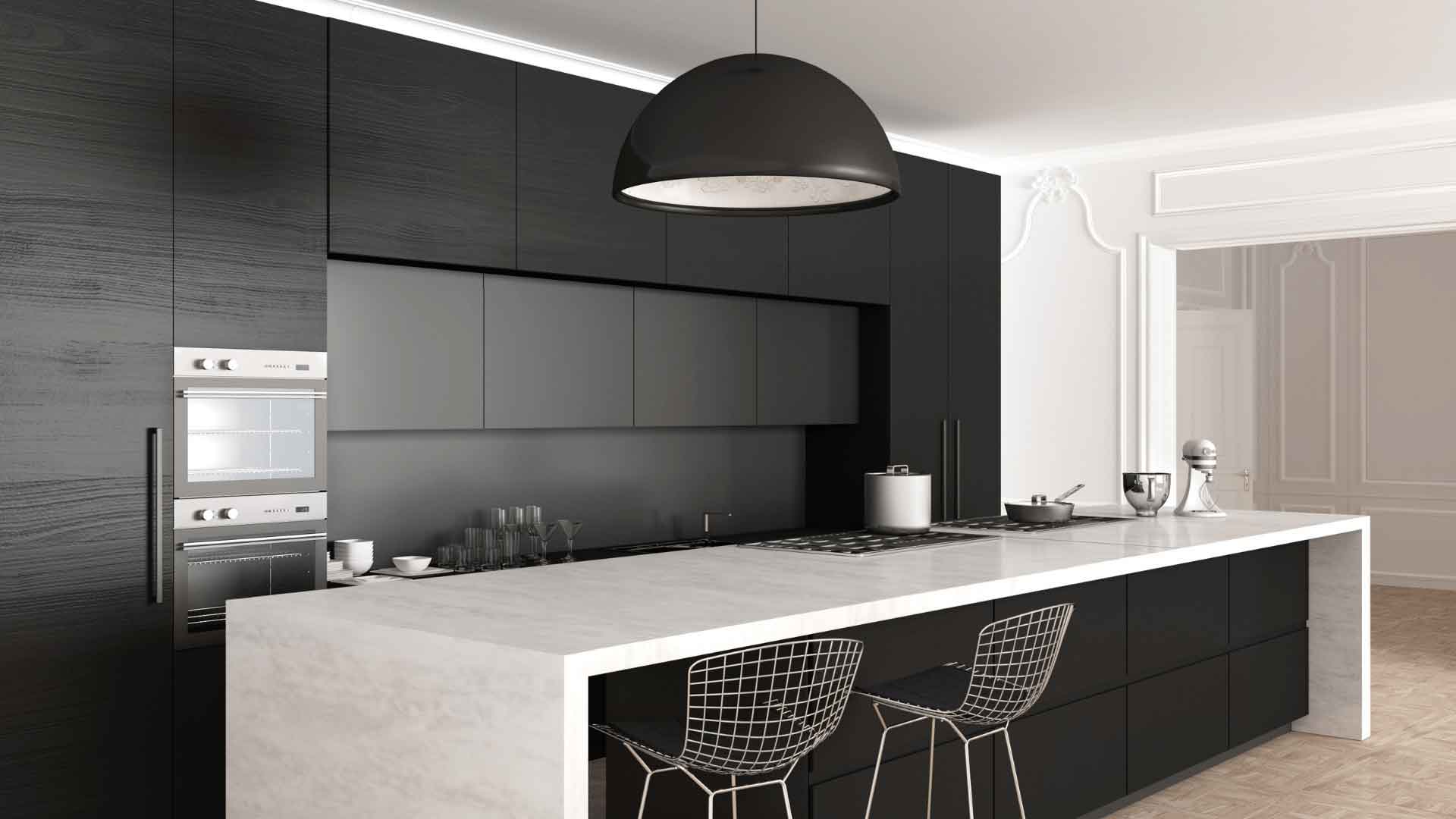The kitchen is an integral part of any home and a successful remodel can make the entire house feel more inviting. When planning for a budget, it is important to consider all aspects of the project in order to ensure that costs are kept within acceptable boundaries. This article will provide insight into what should be taken into account when creating a budget for a kitchen remodel.
Understanding Your Needs
When planning a budget for a kitchen remodel, it is important to first assess the current layout and decide what aspects need improvement. This can include examining countertop space, appliances, cabinets, lighting fixtures, and flooring. Additionally, one should consider their personal needs such as accessibility requirements or preferences related to color scheme.
The next step in this process is determining how much of each item will be replaced versus kept and/or updated. For example, if an existing appliance works well but could use some cosmetic repairs like new handles or knobs, then these items may only require small investments instead of being completely replaced with something more expensive. It is also important to research all available options so that you are aware of different styles and materials that may fit within your desired budget range.
Researching Materials And Appliances
When planning a budget for a kitchen remodel, it is important to consider the materials and appliances that will be used. Researching the different options available in terms of both material types and appliance brands can help determine which items best fit within one’s desired budget. In order to find an appropriate balance between quality and cost, research should include looking at online reviews from other customers regarding certain products as well as inquiring about discounts or special offers when buying multiple items from the same store.
Additionally, comparing prices across stores can also aid in finding the best deals on materials and appliances while still maintaining quality standards. By researching carefully beforehand, homeowners can make sure they are getting the most bang for their buck with regards to their kitchen remodel project.
Creating A Timeline
A timeline for a kitchen remodel is an important part of the planning process. It helps to ensure that everything happens on schedule and prevents any last minute issues or unexpected delays. The first step in creating a timeline is to determine how much time it will take to complete each task, such as ordering materials, demolition work, installation of new cabinets and appliances, painting and finishing touches. Allocating sufficient time for each stage ensures that all tasks are completed properly.
In addition to the length of time needed for each task, other factors should also be taken into account when creating a timeline. For example, if some tasks require specialized labor or equipment that must be ordered separately then this should be factored into the timeline accordingly. Building inspections may also need to happen at certain points during the project so these should also be included in the timeline. Taking all relevant considerations into account allows for an accurate timeline that can help keep your kitchen remodel running smoothly from start to finish.
Budgeting For Labor
Having established a timeline for your kitchen remodel project, the next step is to consider budgeting for labor. It is important to allocate funds appropriately in order to cover all of the necessary components of the renovation process. This includes allocating money for materials, tools, and skilled labor.
When setting aside funds for labor costs, it is essential to factor in the time needed to complete each task throughout the duration of the project. The cost should include both hourly rates and any applicable overtime charges that may be incurred depending on how long certain tasks take. Additionally, research into local regulations regarding minimum wages and safety standards must be conducted before hiring workers so as to ensure compliance with current laws. Finally, contractors should also be screened carefully before being hired in order to ensure that they are properly licensed or insured when working on-site. By following these steps, you can make sure that your budget accurately accounts for all potential labor costs associated with your kitchen remodeling project.
Calculating The Total Cost
In order to plan an effective budget for a kitchen remodel, it is important to accurately calculate the total cost of the project. This includes materials, labor costs and any additional fees associated with permits or professional services that may be needed. Materials are typically one of the largest portions of the total cost and should not be overlooked when creating a budget. Homeowners should research all available products in their desired style range, taking into account durability, quality, performance and warranty options.
Labor costs will depend on whether homeowners can undertake tasks themselves or need to hire professionals Atlanta kitchen designers who specialize in kitchen remodeling projects. Tasks such as carpentry work or electrical wiring require expertise, so hiring contractors can save time and money in the long run. In addition to completing certain tasks professionally, some localities also require permits for structural changes or additions; these must also be included in overall calculations for an accurate estimate of total costs.
Incorporating Contingency Funds
It is important to consider incorporating contingency funds into the budget when planning a kitchen remodel. Contingency funds are additional monies set aside in case of unexpected expenses or issues that may arise during the renovation process. These funds can be used for anything from unanticipated repairs, to replacing faulty materials, dealing with increased labor costs due to unforeseen problems, and more. In addition, they should account for both overage and underage expenditures within the project’s timeline. This will help ensure that there are sufficient financial resources available throughout the duration of the project without having to resort to taking on debt if something goes wrong. Thus, including an appropriate amount of contingency funds in the overall budget is essential when undertaking any kitchen remodel project.
Determining Financing Options
When planning a budget for a kitchen remodel, determining financing options is essential. The amount of money available to spend on the renovation will determine how extensive the project can be and what materials can be used. There are several ways that homeowners may fund their remodel: cash, credit card, home equity loan, or personal loan.
Cash is typically the best option as it allows one to pay in full without interest or fees; however, not everyone has enough money saved up to cover such an expense. Credit cards may also be considered but should only be done so with caution due to high interest rates associated with them. Home equity loans are another option though they come with certain risks including potential foreclosure if payments become delinquent. Finally, personal loans generally have lower interest rates than credit cards and require no collateral but they often require good-to-excellent credit scores for approval.
Careful consideration must take place when deciding which financing option to pursue as it could potentially impact financial stability over time. It is wise for homeowners to research all possible options before making a final decision about how to finance their kitchen remodel.






